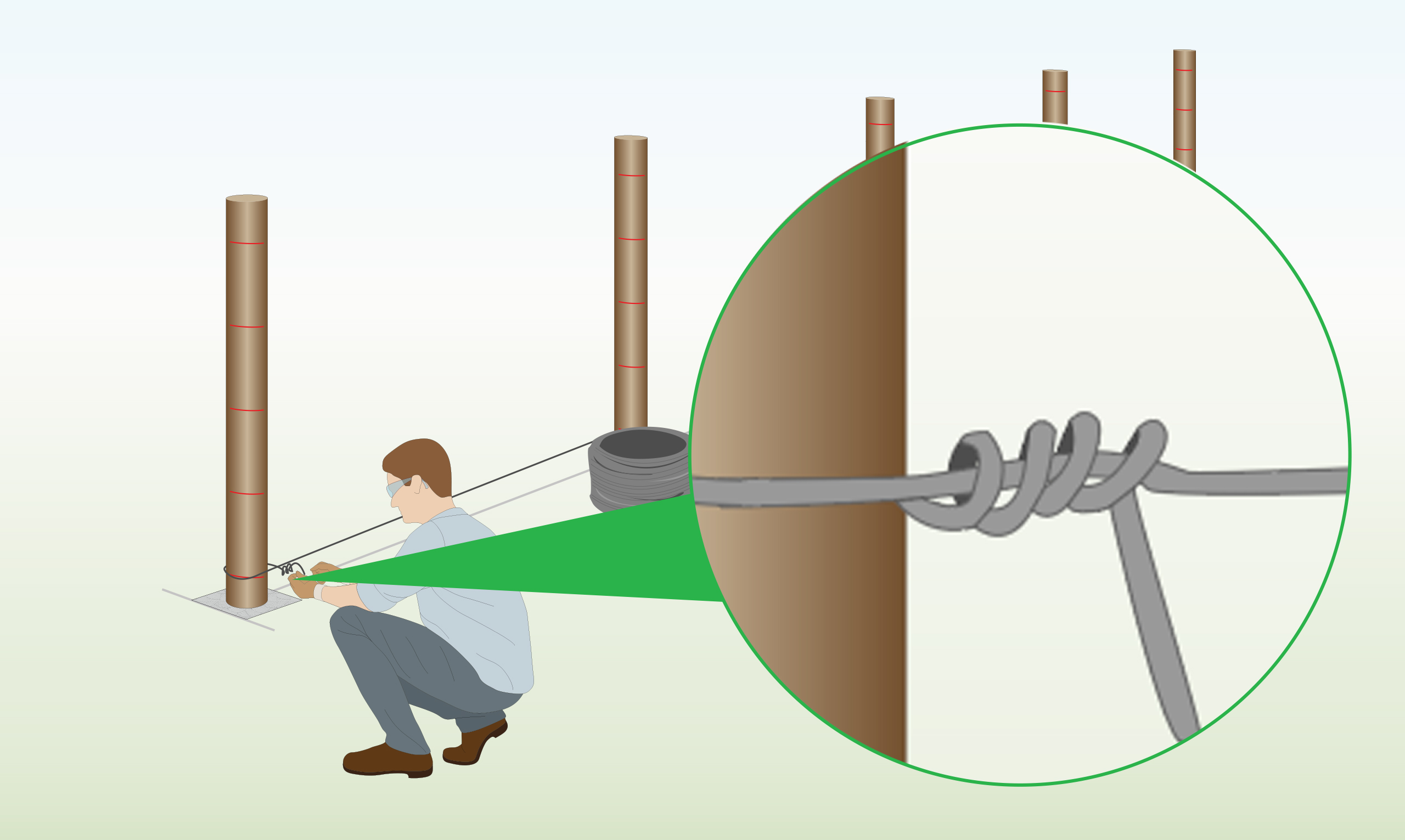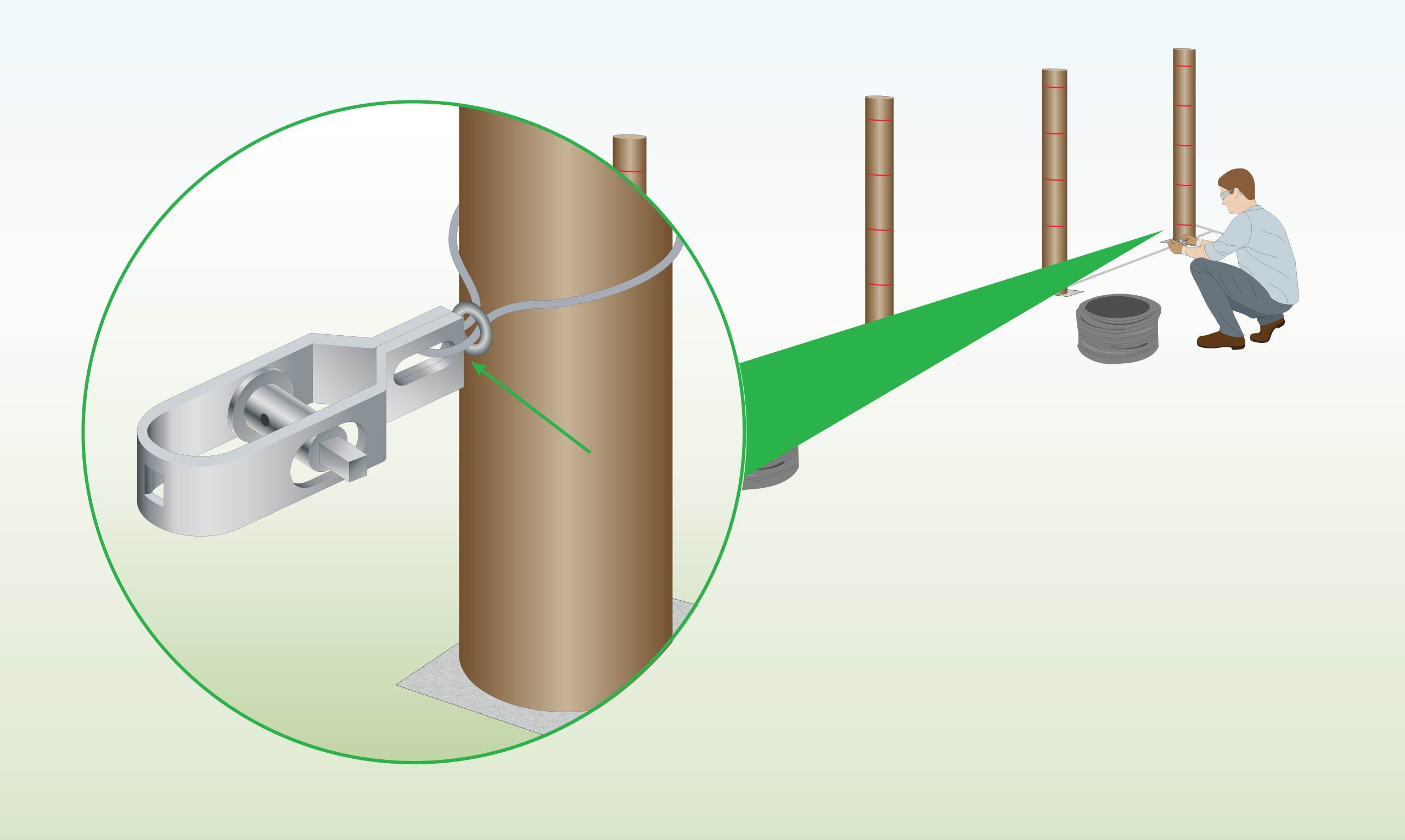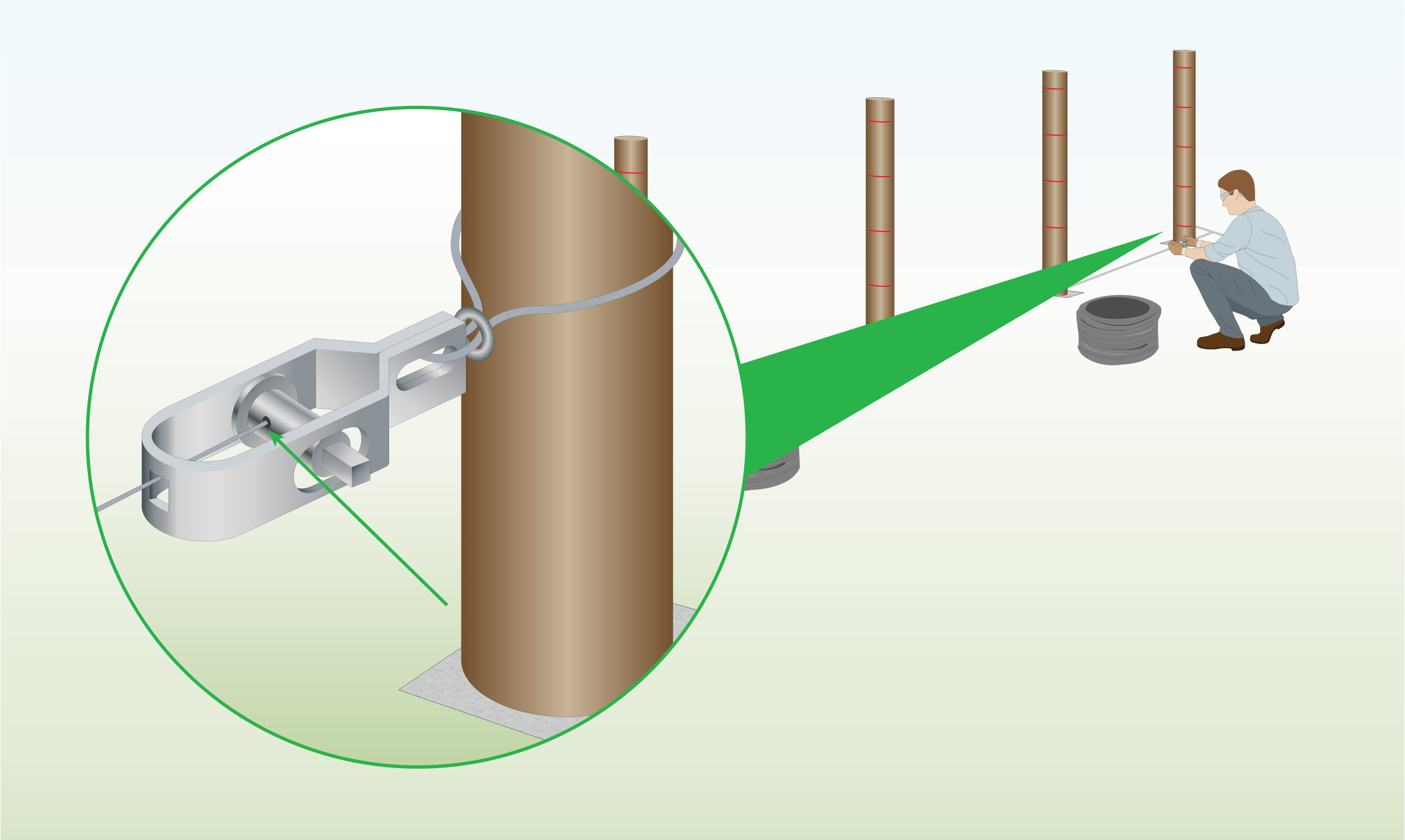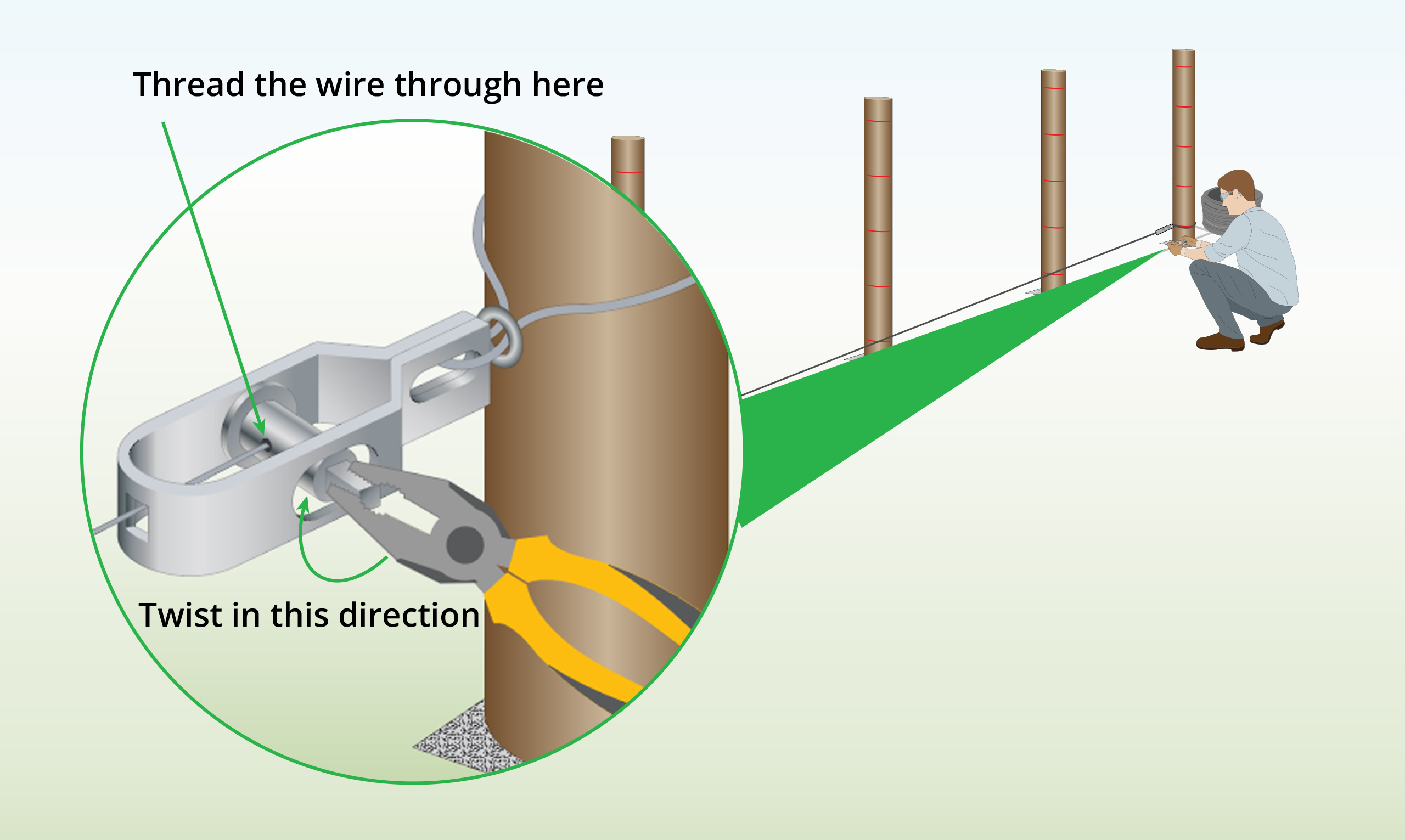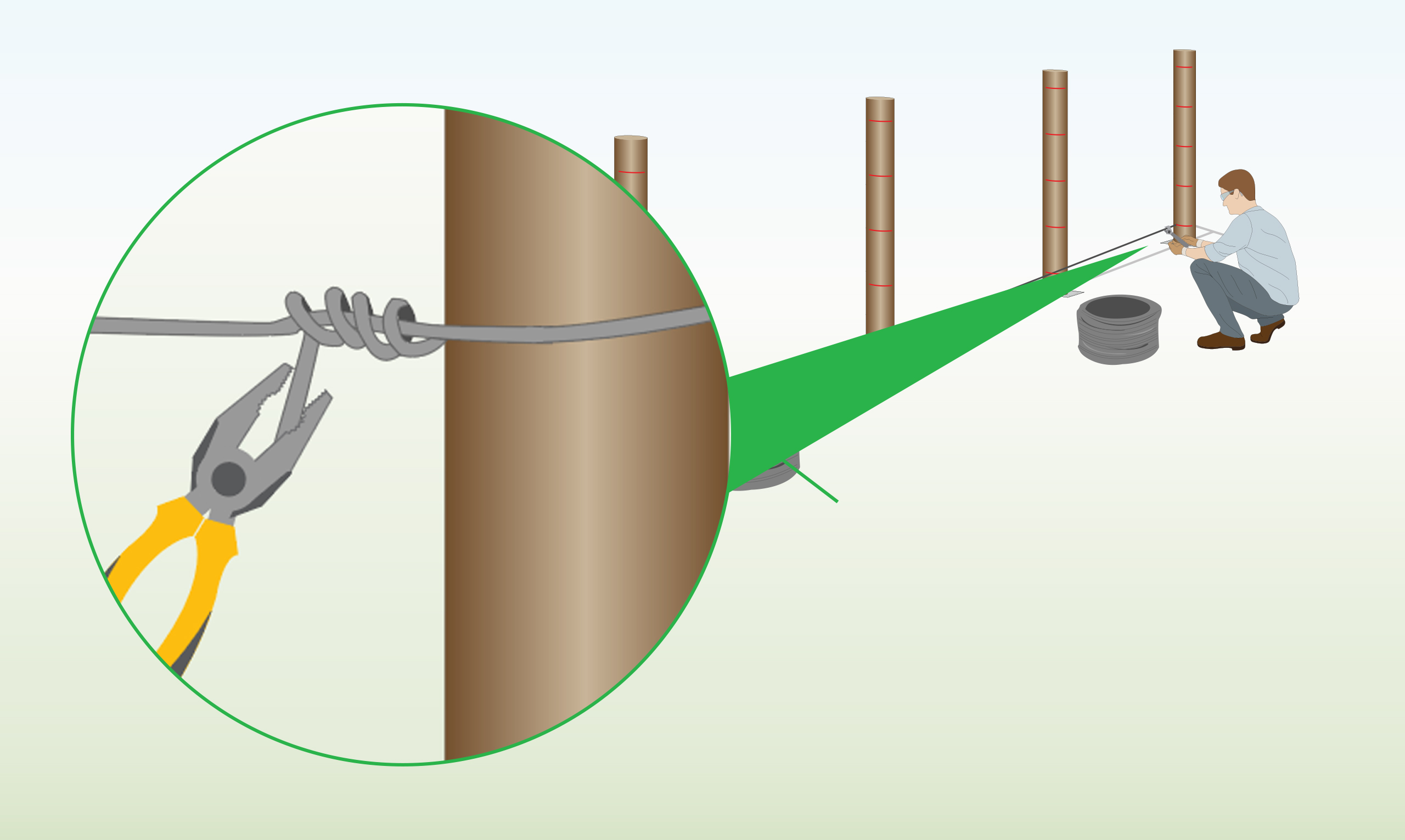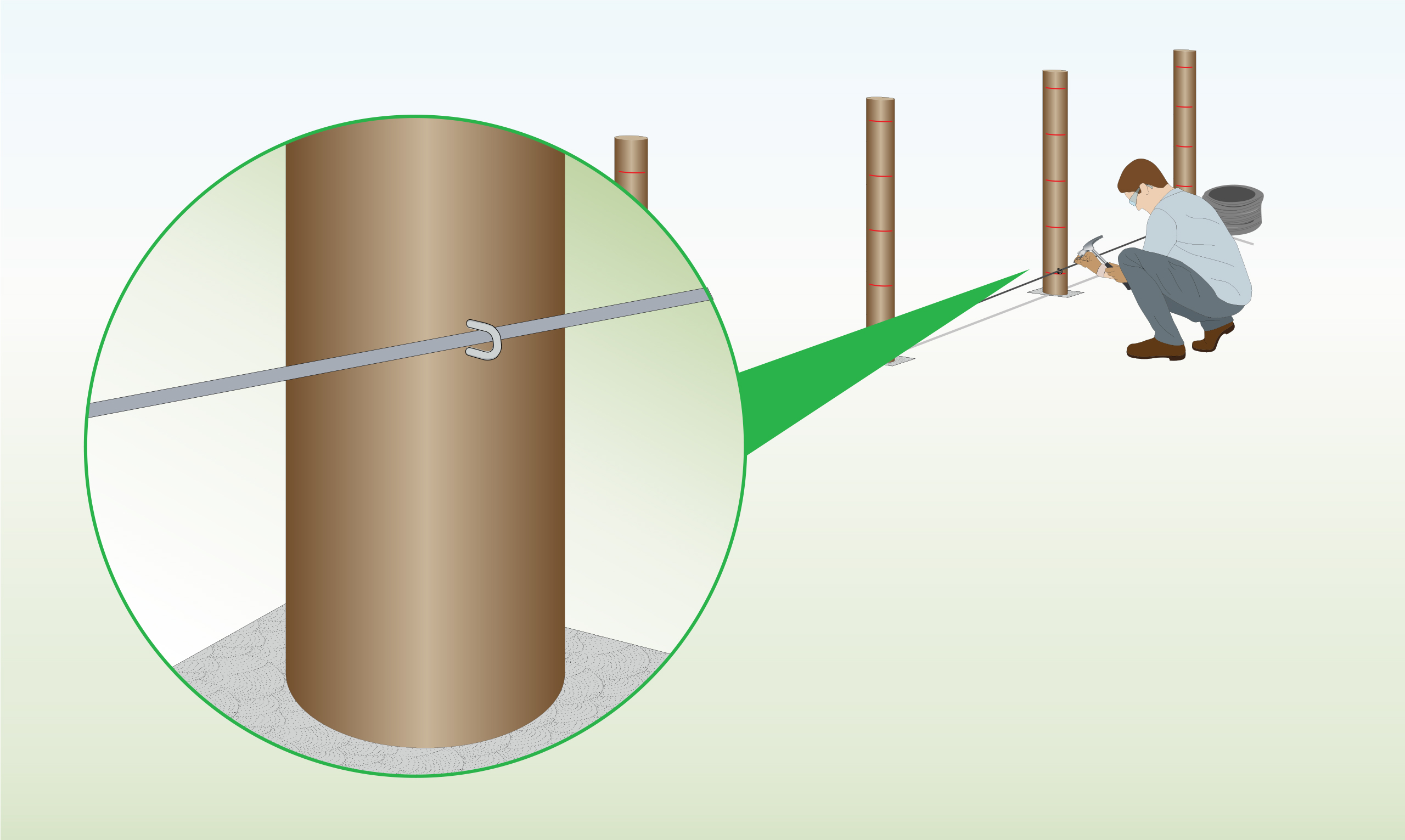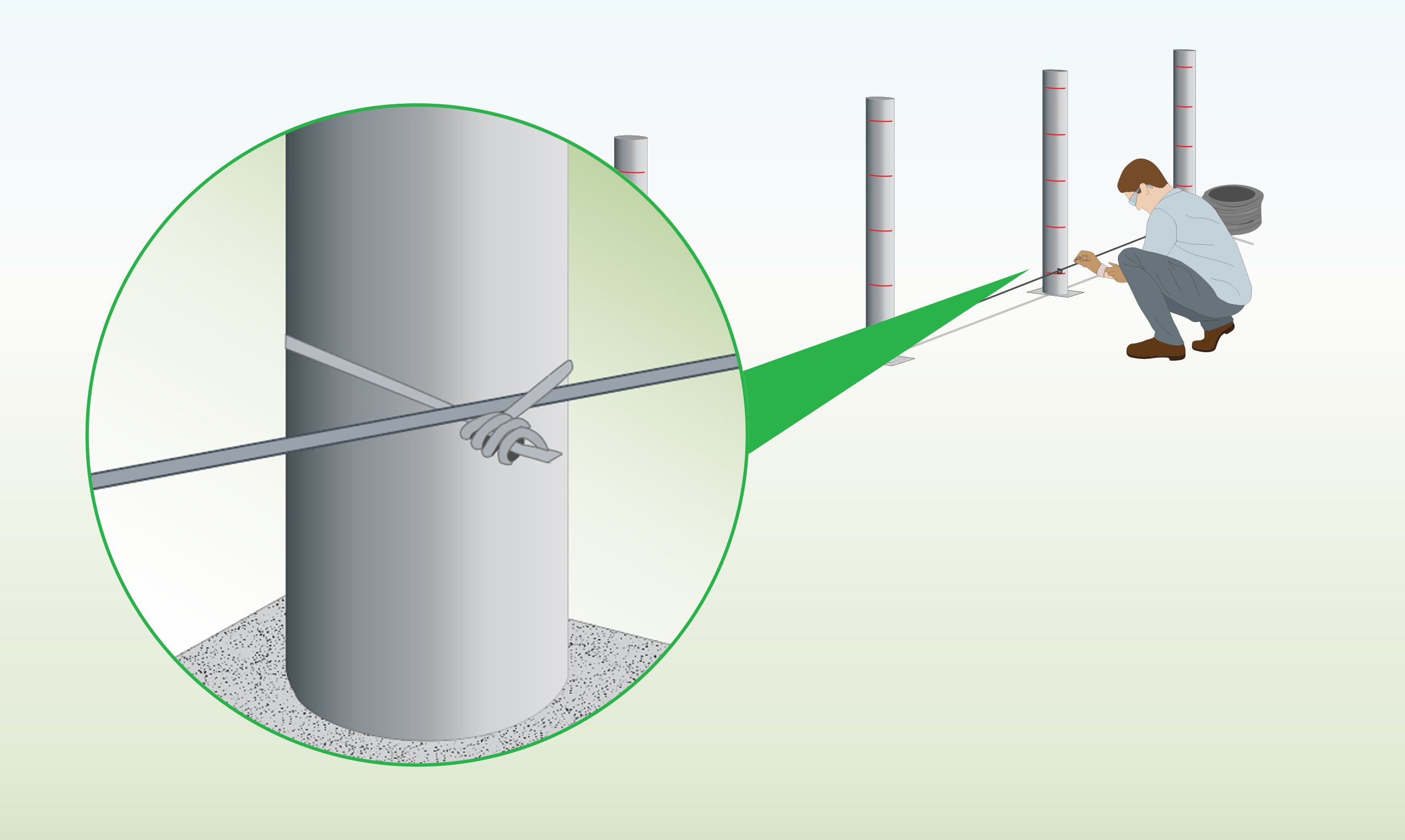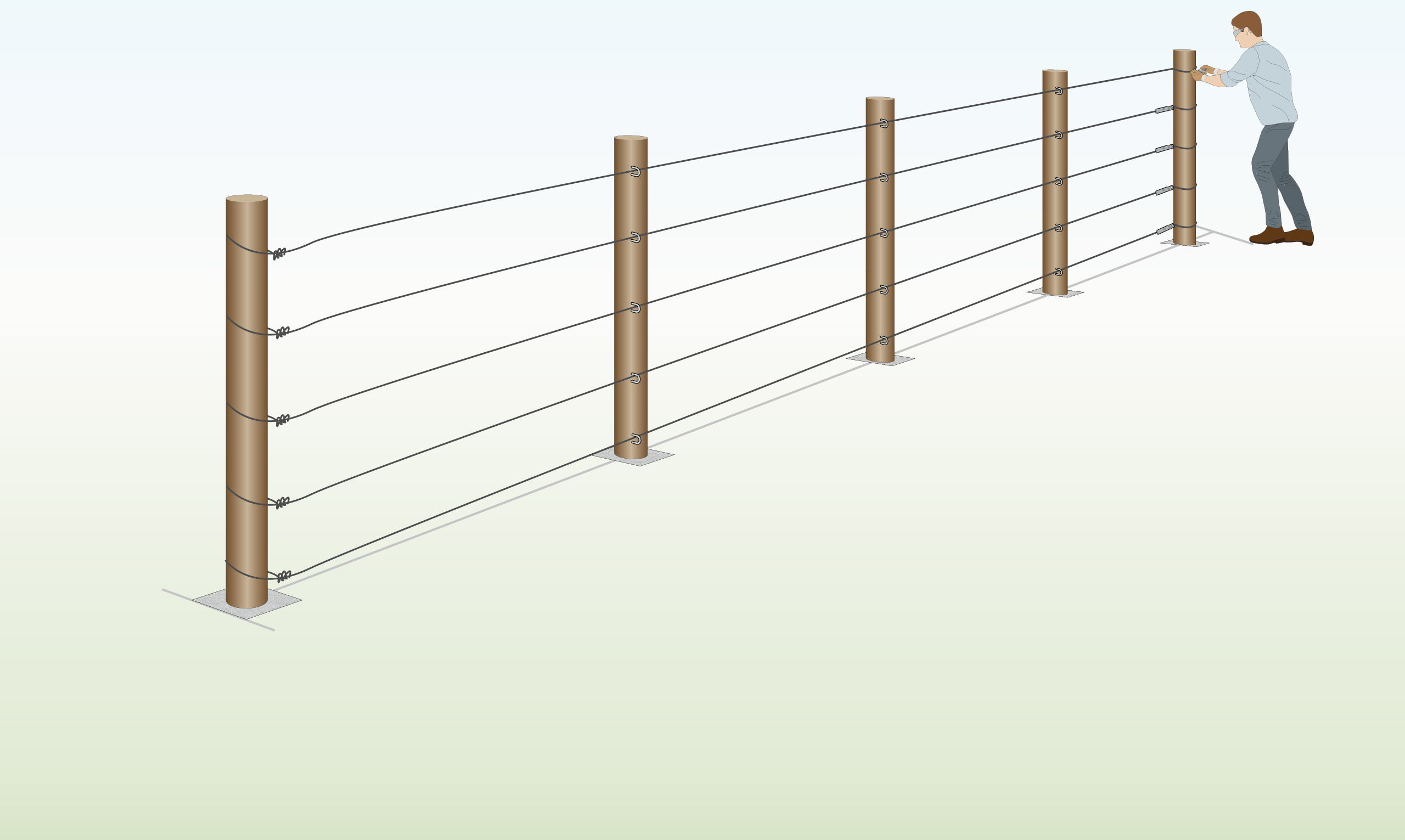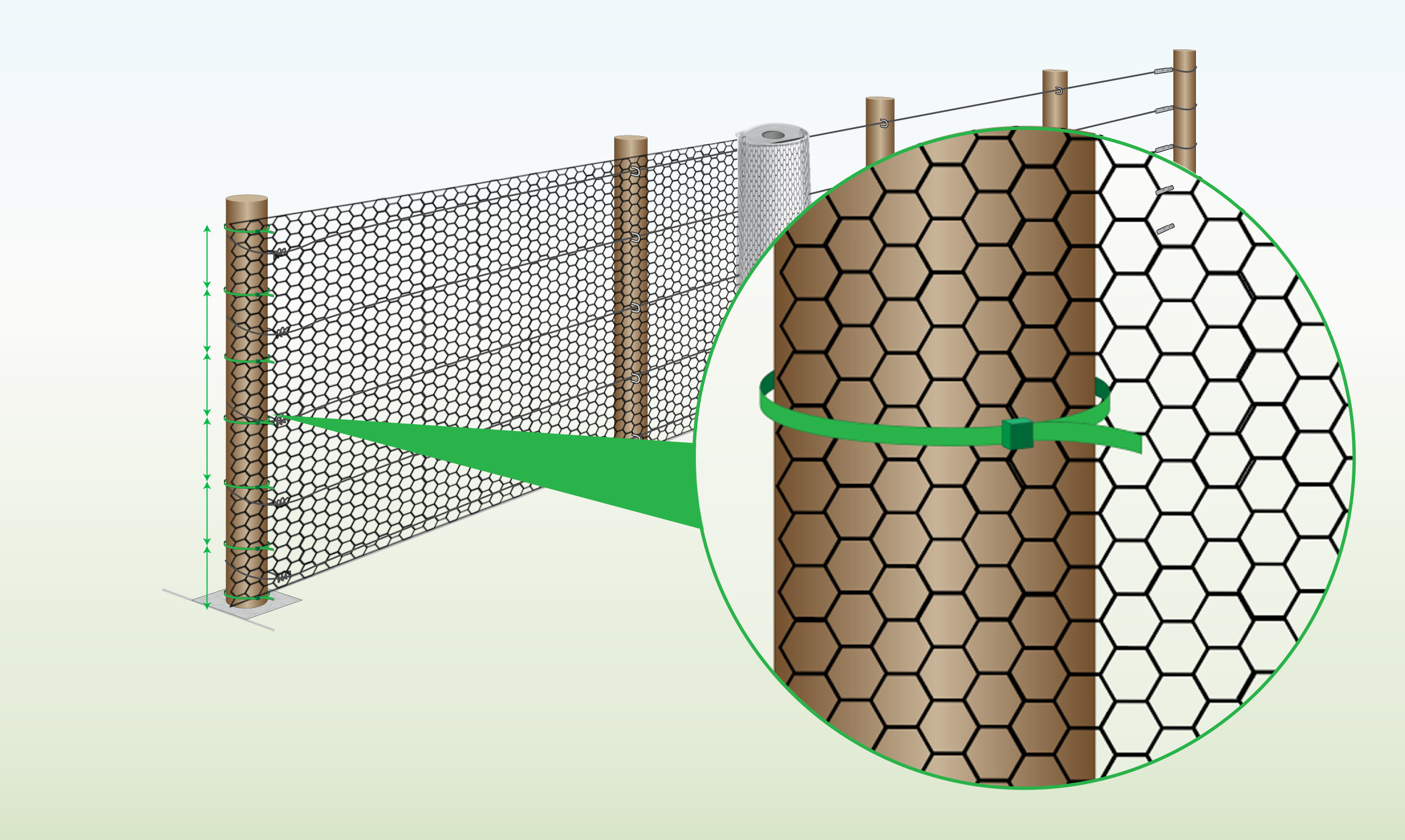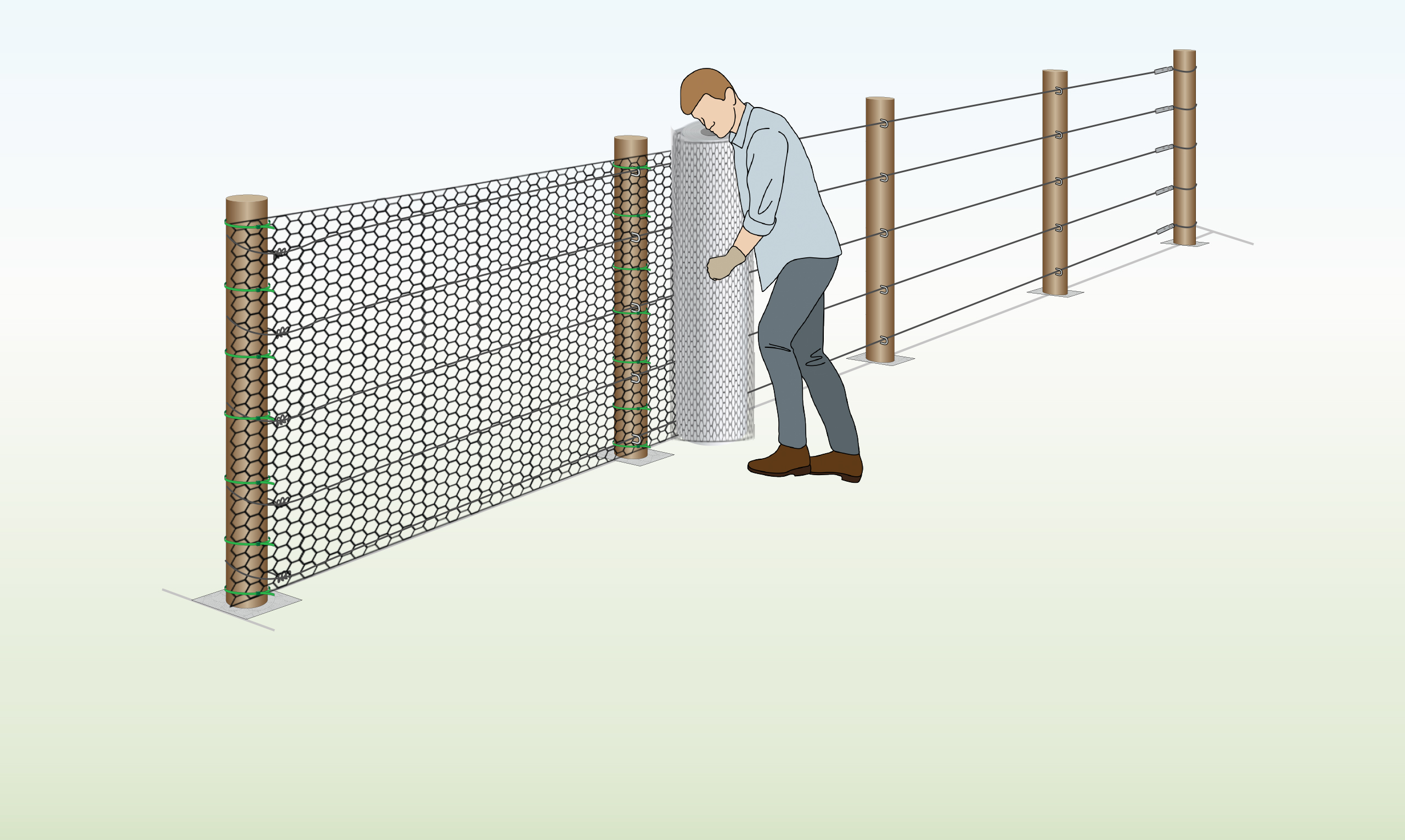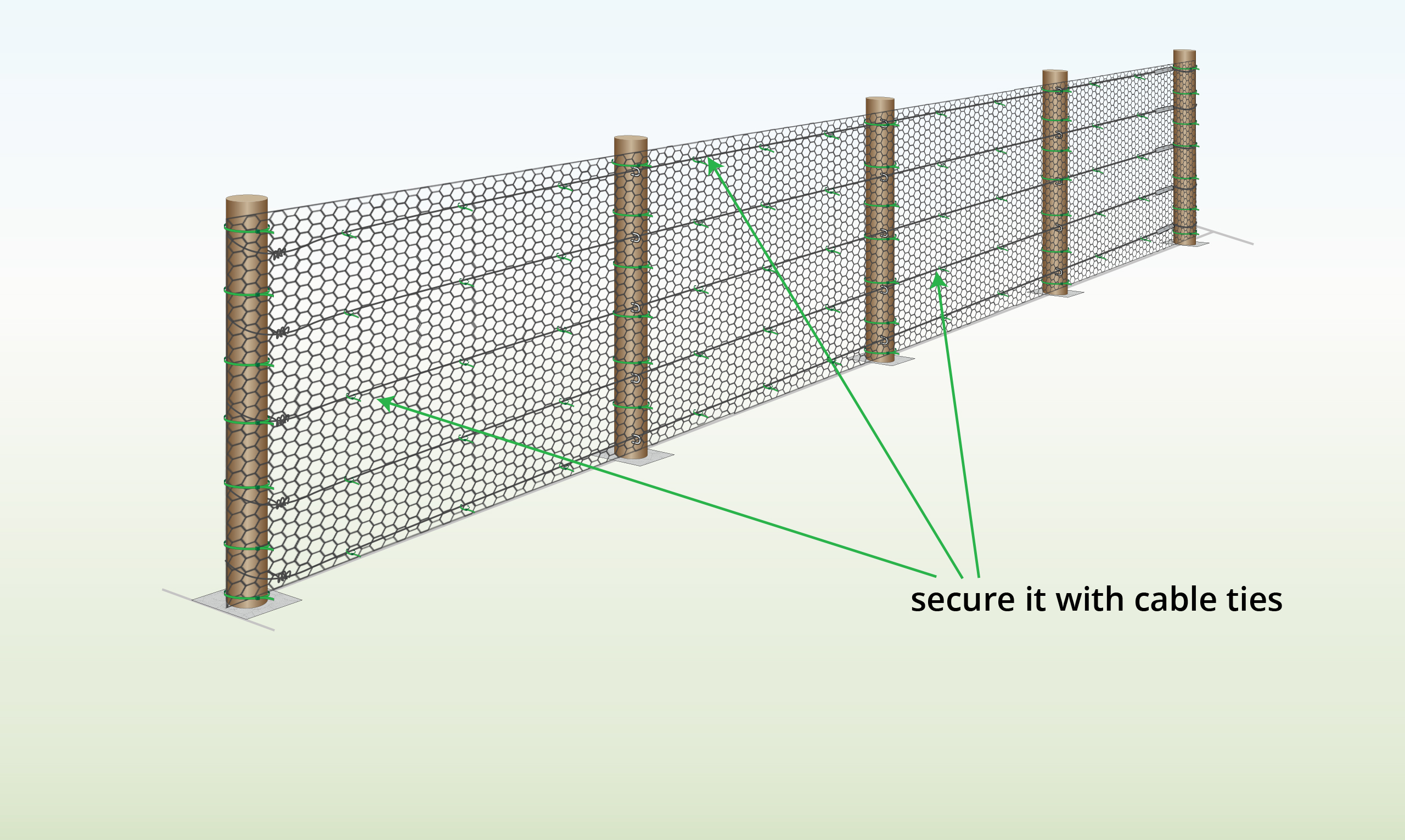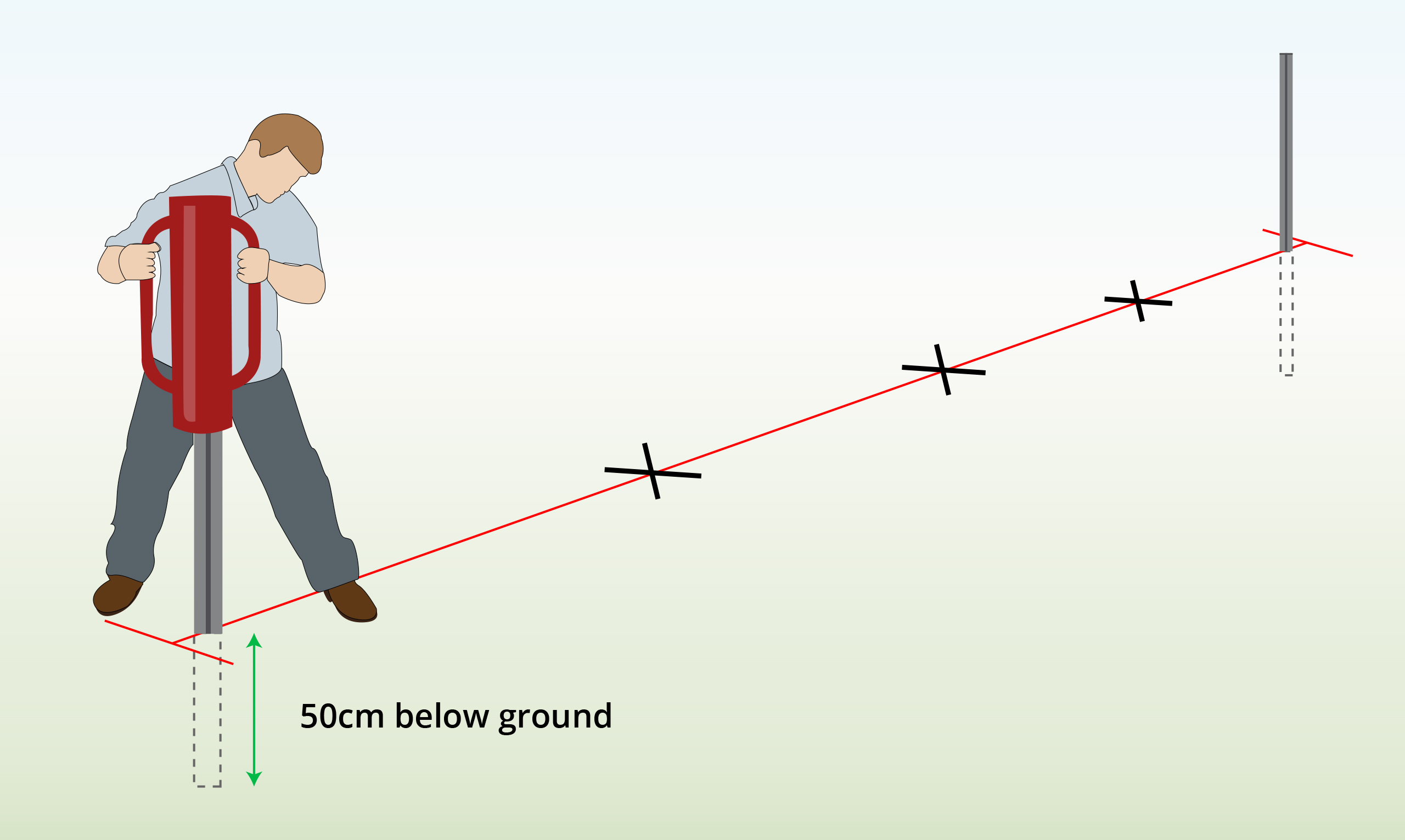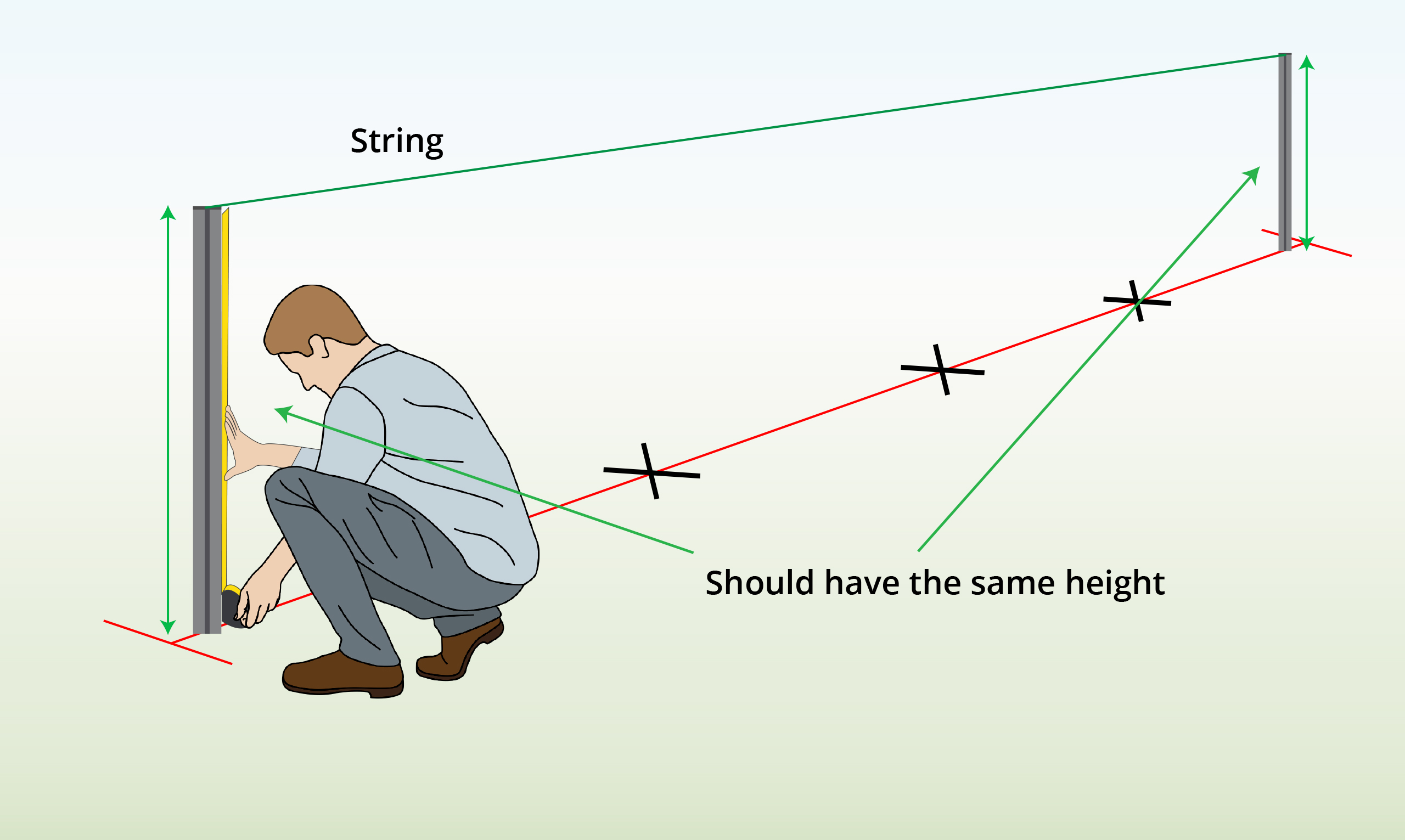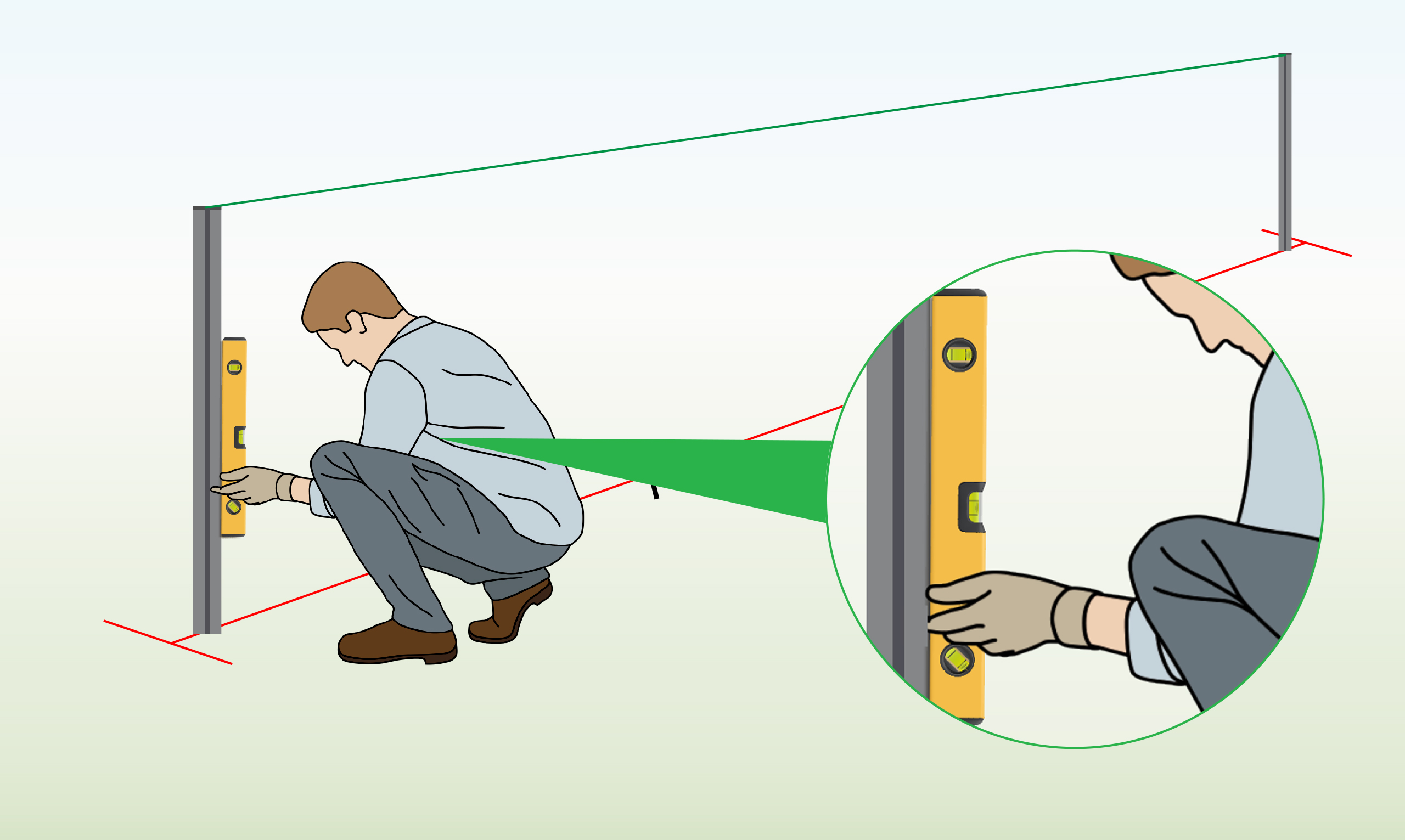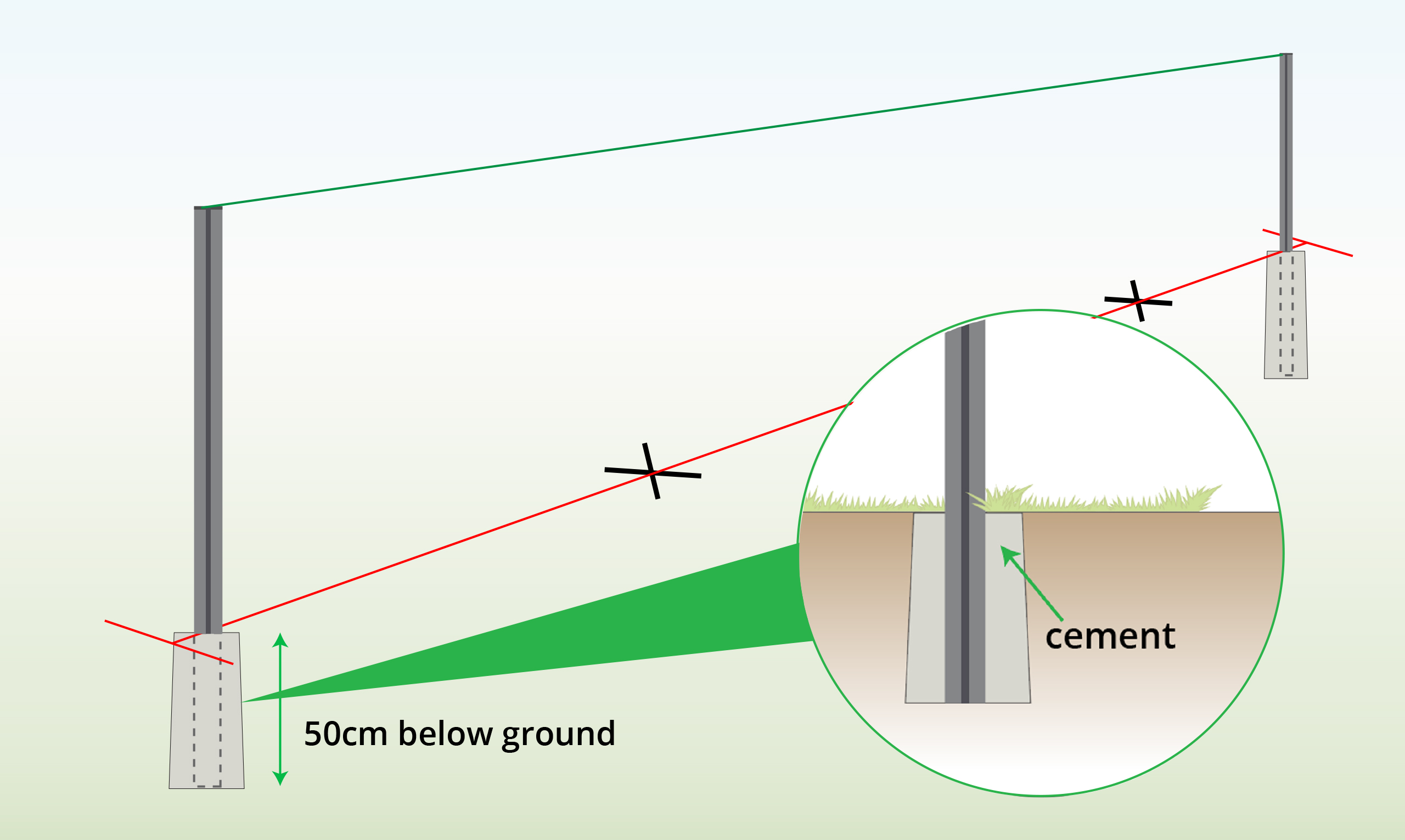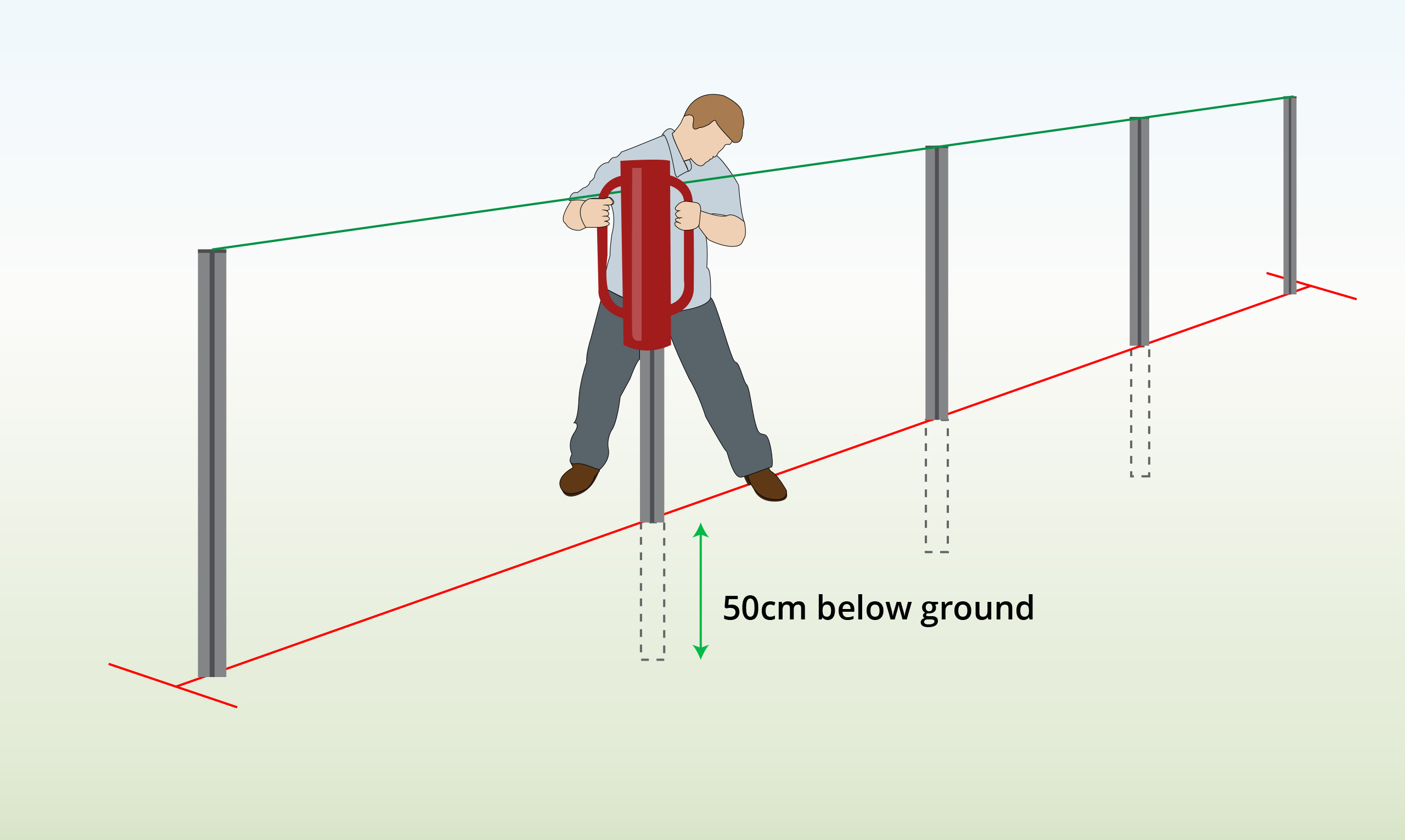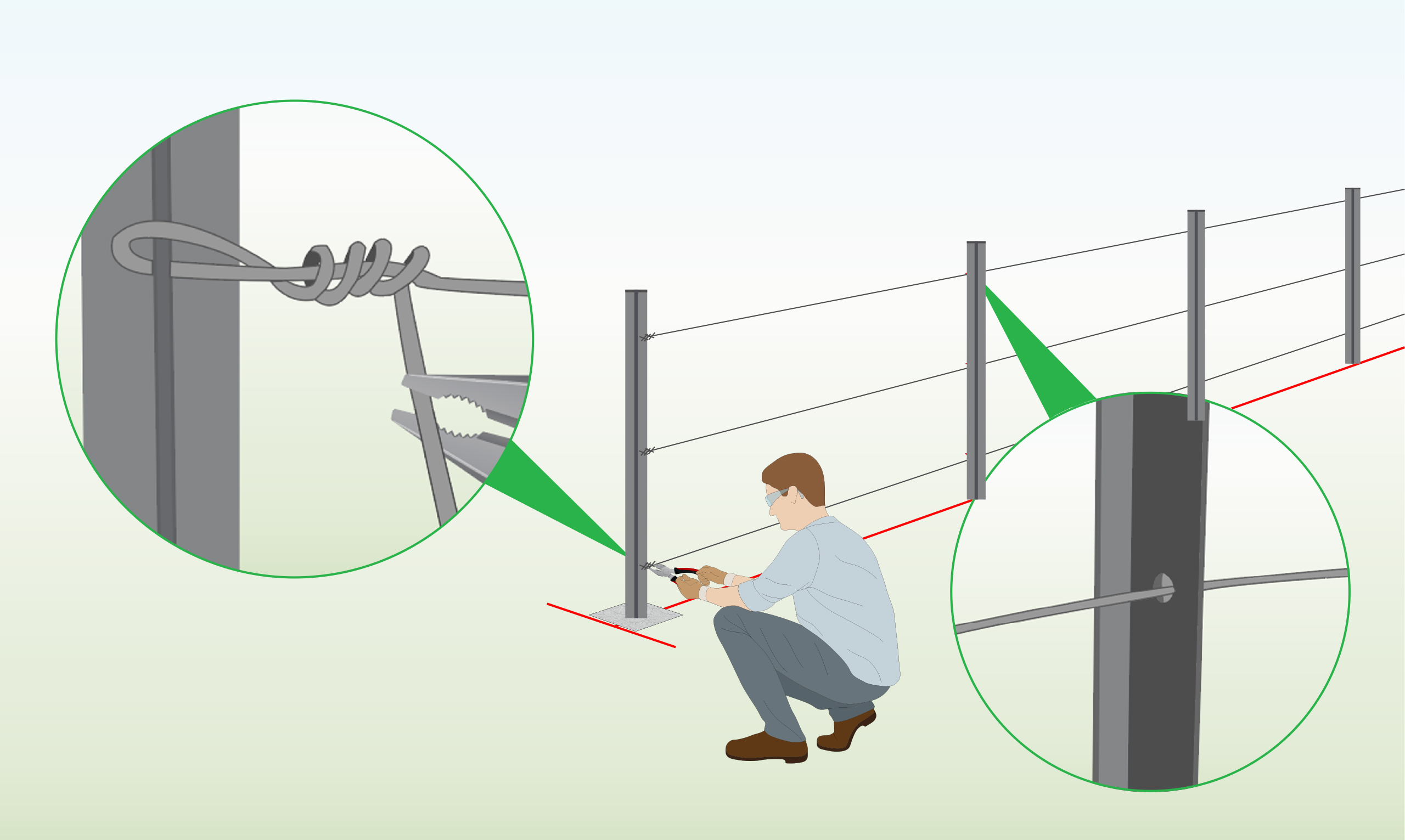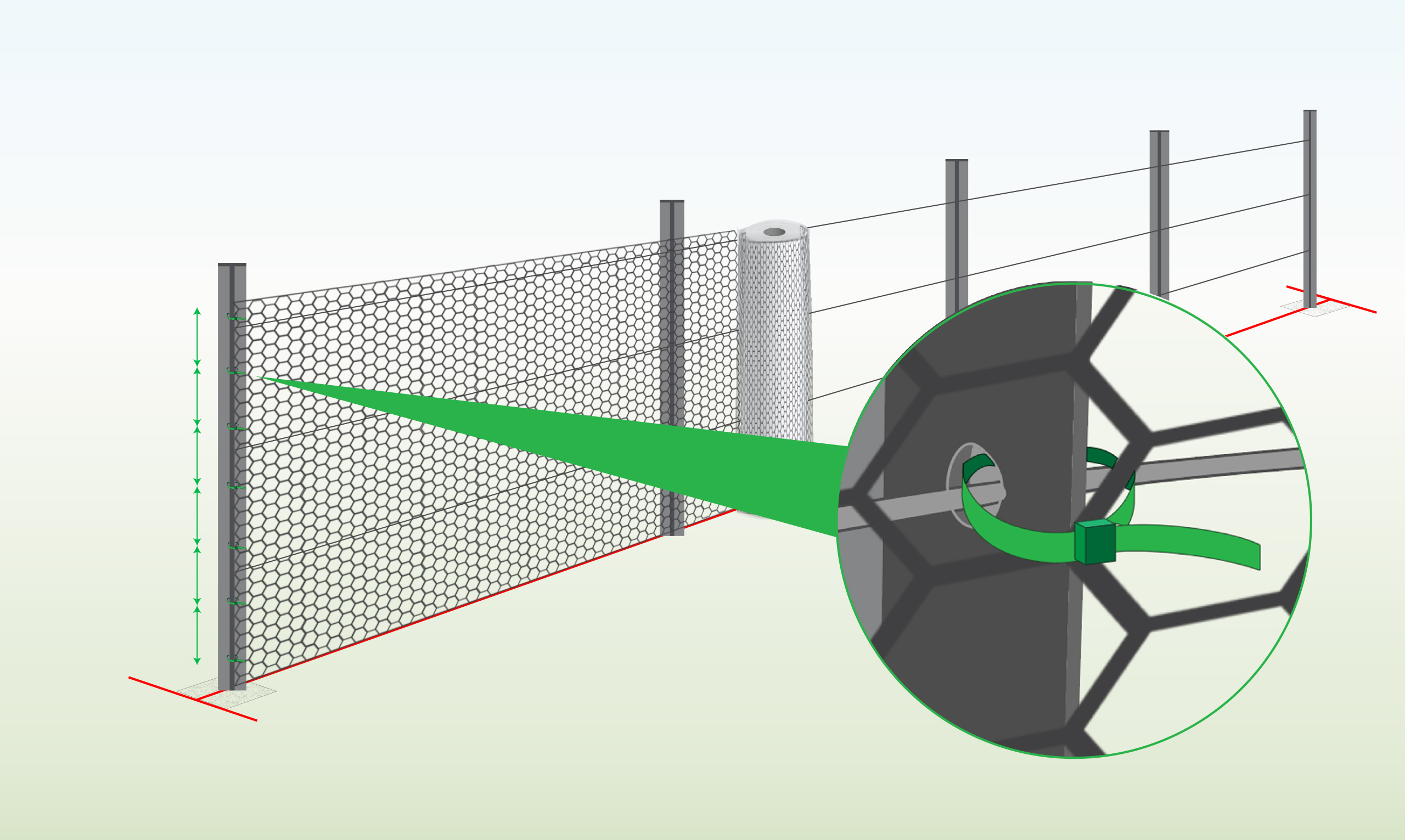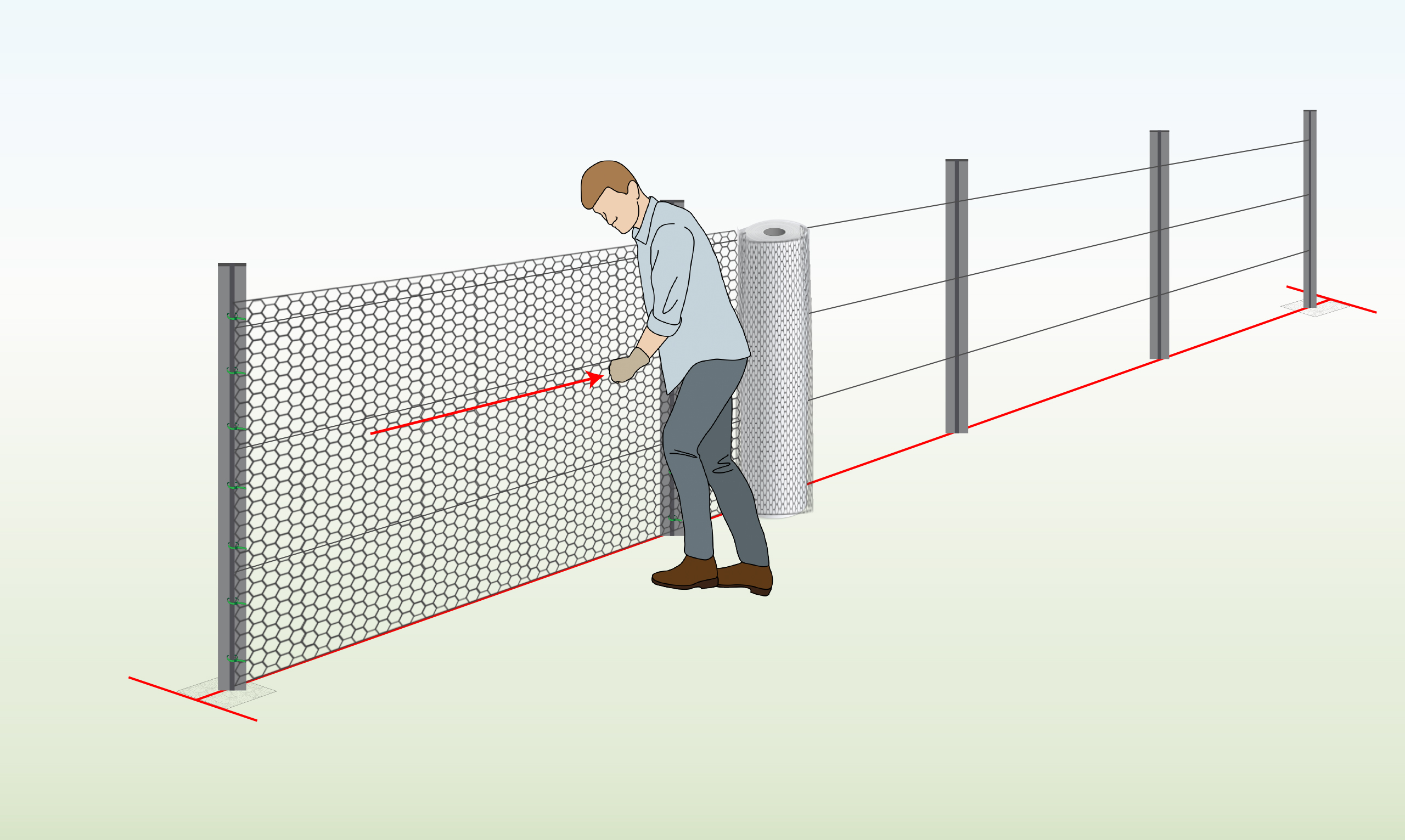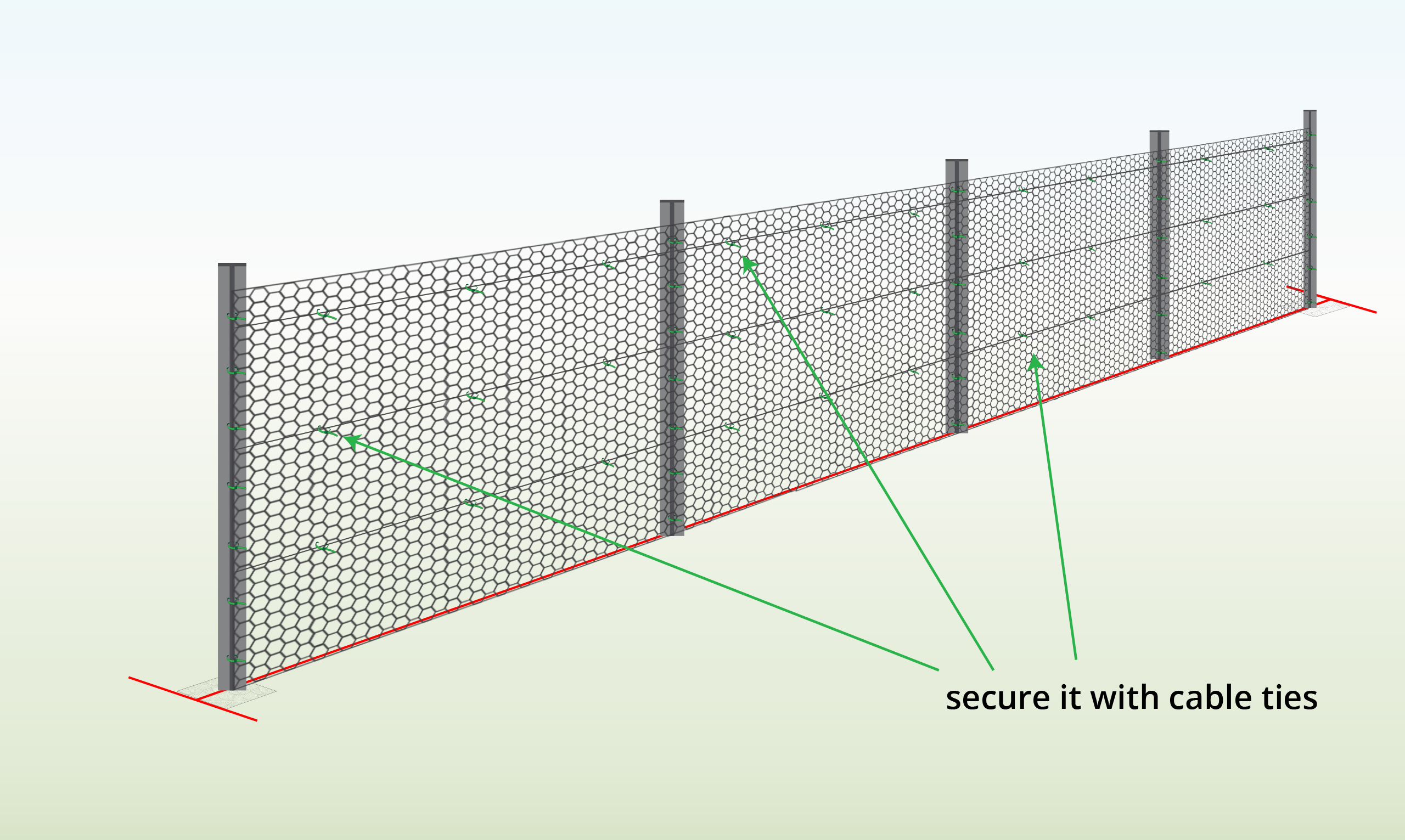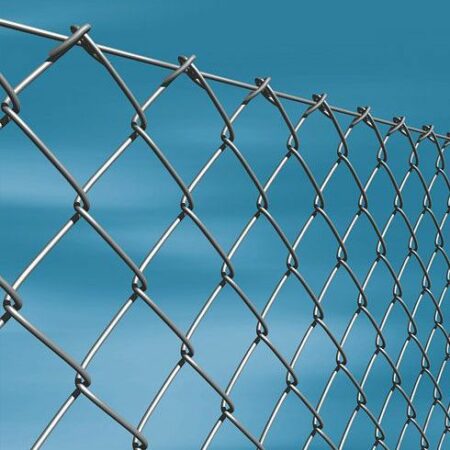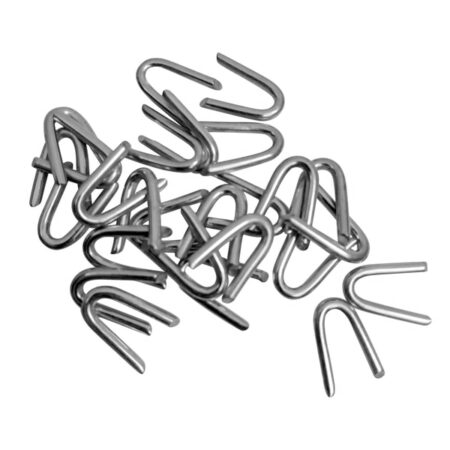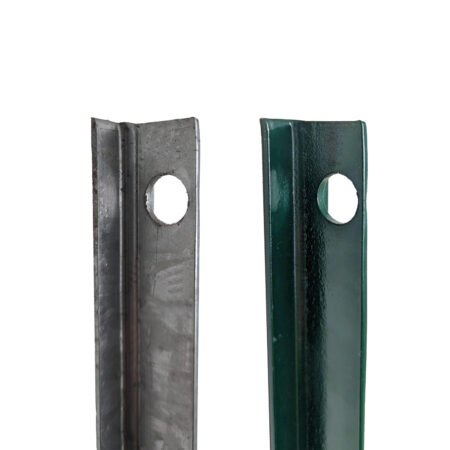Line Tensioning Wire
High-grade, galvanised and green plastic coated line tensioning wire available.
Used to create tension between posts in many types of fencing including: chain link fencing, stock fence, hexagonal wire fencing, rabbit fencing and wire mesh.

Customer Images
Videos

Installation Instructions
For a Tension Wire Fence
For Any Type of Fencing
For T Posts
| To Do | Explanation |
| Step 1 – Mark the Post Location
|
Mark the post location with a distance of 2-2.5m apart from each other. |
| Step 2 – Dig Holes
|
Dig a hole to place your posts into. The depth of the hole should be around a 3rd of the post.
Use a spirit level to ensure the posts are straight. |
| Step 3 (Optional) – Cement in Posts
|
Pour concrete into the holes then place your posts into the concrete. |
| Step 4 – Mark Wire Location
|
Mark where each strand of wire should be on the first and last post. |
| Step 5 – Attach Wire to Start Post
|
Attach the first strand to the bottom of the starting post.
Hook the wire around the post, twist it back and wrap it around itself 4-5 times to hold the tension. |
| Step 6 – Attach Radisseur to Last Post
|
Using a separate piece of wire, attach a radisseur to the last post. |
| Step 7 – Attach Wire to Radisseur
|
Cut the first line of tensioning wire leaving an extra 10 cm of length.
Weave the wire through the hole located in the middle of the radisseur. |
| Step 8 – Tension the Wire
|
Use pliers to twist the pin on the radisseur in a clockwise direction. |
| Alternative Option
|
If you don’t have a radisseur, you can twist the wire around the post and wrap it around itself 4-5 times.
This method will not create as much tension compared to using a radisseur. |
| Step 9 – Attach to Middle Posts
|
Attach the wire to the middle posts using staples. Allow a little room for the wire to move inside the staple.
|
| Alternative Option
|
In case of metal posts, where there aren’t any pre-drilled holes, cut a piece of wire and use it to secure the line wires one by one to each intermediate post. |
| Step 10 – Repeat Steps 5-9
|
Attach the rest of the wire by repeating steps 5-9. |





